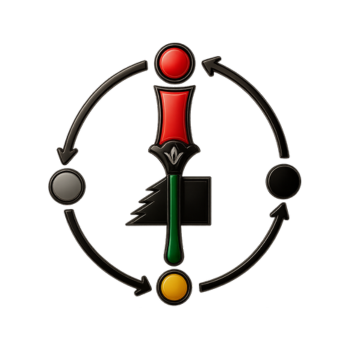-
John G. Jackson tell us:
“In its heyday the Ghanaian Empire covered a realm that would include parts of the modern nations of Guinea, Senegal, Mali, and Mauritania. The founders of Ghana were a people known as the Soninkes. They were a group of tribes related by a common ancestry; and each tribe was made up of a number of clans. Among the important clans of the Soninke were those who were called the Sisse, Drame, Sylla, and Kante. The various clans embodied a system of division of labor that was instrumental in regulating the various functions of government. For example, the Sisse was the clan of the ruling class; for from it was chosen the sovereign, the principal political officials, and the governors of provinces. The Kante clan provided the artisans who engaged in metalworking, such as blacksmiths, goldsmiths, silversmiths, ect. Other clans specialized in such activities as agriculture, fishing, animal husbandry, and the manufacture of clothing.
We learn from Soninke traditions that the Ghana Empire had its beginning about the year 300 of the christian era. The first ruling dynasty seems to have been Berber invaders from North Africa. These interlopers remained in power until about 700 A.C., when a leader of the Sisse clan of the Soninkes organized a revolution which ousted the Berbers. The Soninke rulers built up an empire by subduing neighboring tribes. This was comparatively easy, since the Ghanaians had fine weapons and tools of iron, and their neighbors did not. Besides iron, Ghana possessed another source of wealth that made it a power to be reckoned with, namely a seemingly inexhaustible supply of gold. The first Arab invaders in northern Africa in the eighth century learned from their Moorish converts of the existence in the Sudan of a great nation whose wealth was based on a gold supply of fabulous extent. The Arabs, chiefly through efforts of their Moorish allies, had easily taken over the Iberian peninsula; and they thought it would be a good ideal to cross the desert and invade Ghana. The lure of gold was a powerful attraction; so the invasion got under way, but it came to naught. The invading party was decisively defeated by the armed forces of Ghana; so the Arabs called off the program of invasion and settled down in towns of the western Sahara and the Sudan and decided to become traders.
The Empire of Ghana started out as a kingdom, then annexed other kingdoms, and like many other kingdoms of the past, evolve into an empire. The people of this original Kingdom call their native land Ouagadou; so it is of some interest to learn the original name of Ghana. The Soninkes spoke the Mande language, and in that tongue Ghana meant “warrior king,” and was adopted as one of the titles of the King of Ouagadou. Another title for the king was Kaya Magha (“king of gold”), in allusion to the vast gold treasuries of the country. As the fame of the Soninke warrior kings, or Ghanas spread over North Africa, the people there refer to both the king of the nation over which he rude as “Ghana.”
The ruler of Ghana was regarded as the patriarch, or father, of this Soninke people; and besides this he was commander in chief of the army, head of the state religion, chief dispenser of Justice, and supreme overseer of the nation. On the death of the monarch, his successor was not his own son, but the son of his sister. The Soninke, like most African people, possessed a matriarchal system of social organization, and hence adhered to the matrilineal principle of succession which is even to this day is prominent feature in West African societies..”
From the book:
Introduction To African Civilization pp. 200-201, 206-207 by John G. Jackson
Something about “The first ruling dynasty seems to have been Berber invaders from North Africa” and “Ghanaians had fine weapons and tools of iron, and their neighbors did not.” that just do not sit right with me, don’t know why

